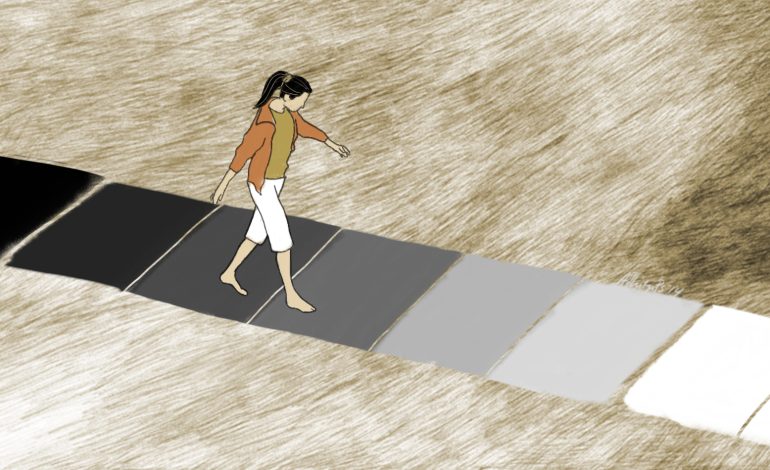Let’s Talk About Going Grey

Ageing is a fact of life. From the moment we are born, time moves forward and the ageing process continues. But in our contemporary world ageing is seen as an affliction and a gender biased one.
Oh sure, men have their insecurities too about growing older. But it is women, globally, who are made the target of a thriving beauty industry, all bent to sell them a myriad of products meant to stop or revert the ageing process (wishful thinking). And the media industry invariably makes women feel guilty about showing signs of ageing – we should aim to be “ageless”, even if this means having recourse to botox or cosmetic surgery.
One of the issues hotly debated at the moment concerns hair color. As we know, hair loses its pigmentation as it ages and this is what causes the phenomenon of grey hair, more accurately described as white hair. The age when this happens varies, genetics plays a part, but for most men and women, regardless of their ethnicity, grey hair is on the menu as they grow older, past the age of forty.
The antidote to going grey for women has always been dying one’s hair. But more recently, there has been a move, initiated by our American sisters but soon spread to Europe and Australia, to ditch the dye and embrace one’s grey, renamed ‘silver’..jpeg) The idea is sound: why not regard grey as a color, which comes in many different nuances, from pewter to silver to spotless white? Why fill one’s body with chemicals and color one’s hair, when in fact the harsh dyes will weaken hair texture and will not match our skin tones (because the skin also changes as one grows older)?
The idea is sound: why not regard grey as a color, which comes in many different nuances, from pewter to silver to spotless white? Why fill one’s body with chemicals and color one’s hair, when in fact the harsh dyes will weaken hair texture and will not match our skin tones (because the skin also changes as one grows older)?
As someone whose hair went grey at the age of 24, who spent years desperately trying to hide the grey strands, experimenting with every possible color combination, I know all about the feeling of inadequacy and even guilt that accompanies the process.
Finally, when I hit the age of 40 I could not go through that coloring routine anymore, the roots kept on appearing within a week and I was spending an inordinate amount of money on hairdressing.
In a satori moment, I chopped my hair off and stopped coloring it. And you know, after a while I liked the new color, the way it went from salt and pepper to silver and then white. I have always loved having long hair so I allowed it to grow, with no concern for the rule that women of a certain age should not wear their hair below their shoulders (why, oh why, are we always given rules about what we should and should not do about our appearance, what we should wear that is age appropriate and so on and so forth?).
At first people thought it might be just a whim. Some told me that I was “being brave”. Then they began to compliment me for my “beautiful silver hair” and they would add “I wish I had hair like yours”, which of course meant nothing, but by casting me as an exception they would feel justified to continue with their routine because their hair was not “as good”.
I was offered a modeling break, thanks to my hair, and here I am, as a spokesperson for “embracing one’s silver”.
There are two things I would like to make clear at this point. I firmly believe that coloring or not should be a choice. I will never look down on women that decide to continue to color – my own sister does. Your hair, your body, your choice. All I am saying is that silver can be beautiful, so don’t be afraid to try it, you can always go back to coloring if you do not like it.
The second point I wish to raise is this: I have often heard that “it’s ok for Caucasian women to go grey, but for us Asian (or Black) women is not good. It does not complement our skin tone, our facial structure guarantees that we’ll never look sophisticated or distinguished with grey hair.” To me this sounds like having internalized a racist and colonial view, as Fanon famously discussed in Black Skins, White Masks.
It may be true that Caucasian women go grey earlier than Asian (or Black women) – though I may be wrong here, I have not found any scientific evidence for it – but non-Caucasian women eventually do go grey. So do men. Now for some reason this argument on the unsuitability of grey hair does not apply to non-Caucasian men. Why is that?
I have searched the Internet for images of non-Caucasian women sporting grey hair and looking beautiful and found many.
So maybe this will help to dispel some doubts?
As I said, I am not suggesting that women worldwide should embrace their grey. It is a personal choice. But I am keen that those non-Caucasian sisters who may wish to try should not be held back by prejudice and what ultimately boils down to racism.
Photo Courtesy of Alex Bruni






















